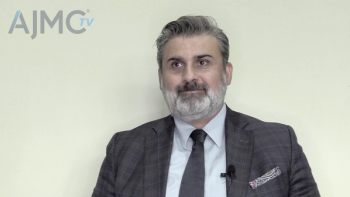
A Modern Cholesterol Test: Clinical Advances and Patient Convenience
A non-fasting test to measure low-density lipoprotein (LDL) cholesterol has many advantages for patients and physicians, but payers can also see some benefits, explained Eliot A. Brinton, MD, FAHA, FNLA, president of the Utah Lipid Center.
A non-fasting test to measure low-density lipoprotein (LDL) cholesterol has many advantages for patients and physicians, but payers can also see some benefits, explained Eliot A. Brinton, MD, FAHA, FNLA, president of the Utah Lipid Center.
Transcript
Besides a more accurate measure of LDL cholesterol in a non-fasting setting, why does the new test developed by Johns Hopkins and in use by Quest Diagnostics offer patients greater convenience? Why is this important?
It’s a convenience for the patient to be able to have the testing done non-fasting. Again, our standard is fasting, and there’s nothing wrong with fasting. I’m a lipidologist—I do a lot of my testing, even most of my testing fasting. But for the primary care doctor, for somebody not just focused on lipids per se, it can be very helpful to be able to do a non-fasting [blood] draw and then good lipid panel results.
So, for the convenience of the physician, in terms of not having to order a test in advance of the visit, or for the patient of not having to fast until 3 or 4 in the afternoon, if that’s when the draw is going to take place, it is a major step forward to get accurate results with a non-fasting sample.
Is there an advantage for payers?
The advantages for payers are more indirect, in the sense that there’s going to be less redundant lipid testing; maybe we’re going to have a better ability to calibrate our treatment. Certainly, with LDL being our primary target of treatment, we’re having a renaissance of LDL goals in the United States.
It is helpful to the payer to have the doctor understand what is the best estimate of the LDL cholesterol, and therefore, treatment with various pharmaceutical agents and of course diet and lifestyle can be better focused where it needs to be focused, if we have a better understanding how low that patients’ LDL cholesterol truly is. Then, I think it’s easier to use the treatments that are truly necessary or not use the treatments that may not be necessary. So, there is a benefit to the payer for sure, not only a modest benefit in terms of the testing, but also a benefit in terms of the use of the pharmaceuticals.
Newsletter
Stay ahead of policy, cost, and value—subscribe to AJMC for expert insights at the intersection of clinical care and health economics.














